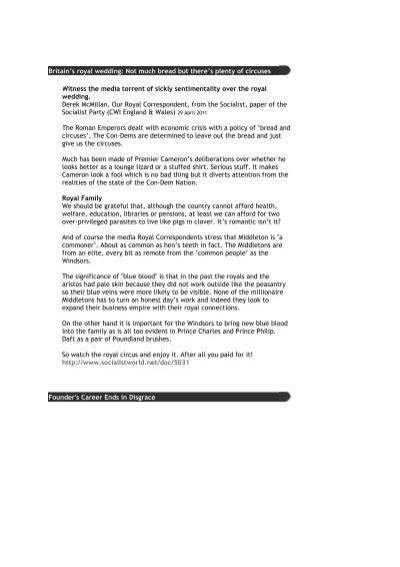Students joining universities and colleges have, over the years, chosen to study courses deemed more marketable than others. These include law, engineering, information and technology, computer science, journalism, medicine, nursing and education.
On the flip side, there are a set of other programmes that the applicants shun, since they are considered "unattractive" and therefore receive few or no applicants when students are choosing the courses to study in university, yet the perceived notion that these courses are unmarketable is due to lack of proper information about them.
This scenario played out in 2020 when the Kenya Universities and Colleges Central Placement Service (KUCCPS) revealed that 16 programmes on offer in 10 universities did not receive a single application from the over 90,000 potential students. The courses had a capacity of 795 students but none of the candidates who qualified for university admission in 2019 thought they would make a career from studying them.
The courses included Bachelor of Science (BSc) in Automotive Technology, Bachelor of Technology in Building Construction, Bachelor of Technology in Renewable Energy, and Bachelor of Technology in Mechanical Engineering as well as BSc in Energy Technology. Others were BSc in Renewable Energy and Technology, BSc in Aquatic Resources, BSc in Animal Production and Nutrition, BSc in Oceanography, BSc in Agricultural Education and Extension, BSc in Fisheries, BSc in Economics and Statistics, BEd in Technology, Bachelor of Commerce, Bachelor of Laws and Sharia, and Bachelor of Agribusiness Management.
Other courses that have been fairing badly are Bachelor of Theology, Social Work, and Community development, Technology in Mechanical Ventilation and Air conditioning, Bachelor of Arts in Peace and Conflict Studies and Business Administration, Bachelor of Science (Aquatic Resources Conservation and Development), Bachelor of Science (Natural products) and Bachelor of Science (Environment and Resource Management).
The stark revelation by KUCCPS sparked the old-age debate on the relevance and marketability of some university courses, with a number of Kenyans calling for the scrapping of the "irrelevant" courses, arguing that some of them are just there to add numbers yet lack appeal in the job market.
Education cabinet secretary Prof George Magoha even went ahead to call on the Commission for University Education (CUE) to conduct a thorough analysis of the courses, including a review and scrapping of such courses if need be.
However, little attention was given to the other side of the coin which begs the question whether the glaring wide berth between popular and unpopular courses could have been contributed to by a lack of information on marketability of the courses.
The chief executive officer of the Commission for CUE, Prof Mwenda Ntarangwi, attributes the situation to three major factors. First, he says the students probably think the courses will not lead them to immediate employment. Second, they have no information regarding the courses and third, they have never thought about them so not choosing them is due to non-familiarity.
These factors, noted Prof Ntarangwi, are linked to a lack of information, knowledge and proper career guidance. He cites the Bachelor of Science in Oceanography as an example, saying it is directly linked to the Blue Economy sector that has, in the recent past, received significant attention from the government.
"How do we prepare our communities to handle disasters that might come from rising sea levels, climate change if we don't have scientists who can understand the ocean and its various sets of geomorphology to predict how to avoid human catastrophe brought by changes in the water levels?" he poses.
He explains that such courses will be ignored simply because the students are not familiar with them and opt for the ones they are familiar with, yet some of the rejected courses are in high demand even abroad.
"You can always point to a marketer, lawyer, engineer, teacher, nurse, doctor, but a lot of times, the students don't know that these other courses are also good and will even make them internationally marketable," says the CUE boss.
Dr David Kabata, an entrepreneurship and innovation lecturer at Kirinyaga University, concurs with Prof Ntarangwi, saying that most students go for courses which they think can get them jobs easily and end up ignoring even better courses.

He explains that most of the time, the students fall for the names of the courses as well as what parents dictate to them, leading to a situation where the students finish the course but are not able to create value using the knowledge and skills gained.
For instance, Dr Kabata explains, a course like journalism is practical in nature yet the students are unable to apply the skills gained to create value and make money out of their skills, leaving many graduates unemployed yet they can use their photography, design and writing skills to create employment for themselves.
He also mentions an ignored course such as BSc in Animal Production and Nutrition, which he says is marketable since farmers will always have challenges and will require someone with knowledge to assist them.
Other courses he cites are agribusiness, Geography Information Science (GIS), nutrition and dietetics and even medical engineering which he says is crying out for takers.
Career guidance
"With Nutrition and dietetics, any person above six years is your customer. This is a degree that students don't want to do, asking where they are going to be employed yet if they have a problem of diet themselves, they will not easily get a nutritionist," avers Dr Kabata.
"The national government bought medical equipment for counties but they have never been used basically because there are no people to use and maintain them. So you can see how marketable the medical engineering course is but the students only want things they know about and have seen," he adds.
Sign up for free AllAfrica Newsletters
Get the latest in African news delivered straight to your inbox
By submitting above, you agree to our privacy policy.
Success!
Almost finished...
We need to confirm your email address.
To complete the process, please follow the instructions in the email we just sent you.
Error!
Error!
There was a problem processing your submission. Please try again later.
Prof Ntarangwi points to the need to have solid career guidance and exposure for the students to help them make better decisions.
"Our career guidance should also be beefed up to explain to students the trends in employment and possibilities from each of the programmes. That preparation is very important," he said.
Miriam Gachago, an independent consultant on development programmes and a Masters of Education holder from the University of Manchester, agrees with Prof Ntarangwi, pointing out that universities have to put more effort in informing the students what each of these courses entail and what careers they lead to.
"The careers and guidance function in the schools has got to improve. There are some courses that have no students yet are very useful for our country. We cannot depend on ill-informed students to make decisions on scrapping courses," says Ms Gachago.
Dr Kabata stressed that the lack of career guidance is a big challenge as secondary schools and universities careers and guidance officers have failed to guide and counsel students while parents have also failed to offer mentorship to their children to think broadly.
"Parents want their children to either study education or nursing because they can get employment easily. This leads to most students often going only for employment-oriented courses," he says.
Read the original article on Nation.









